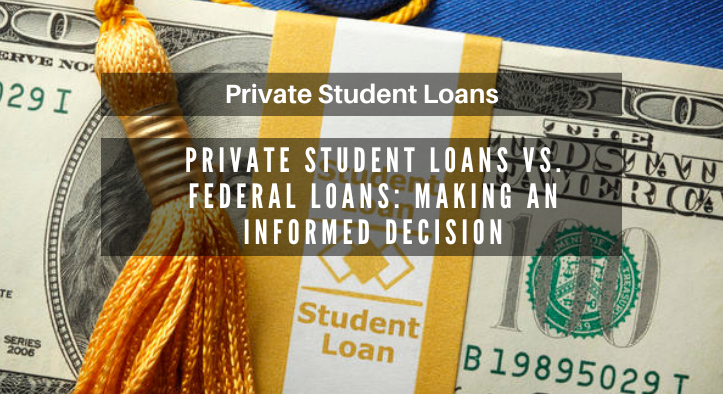Private Student Loans vs. Federal Loans: Making an Informed Decision

Private Student Loans vs. Federal Loans: Making an Informed Decision
When it comes to financing a college education, there are two main types of loans available to students: private student loans and federal loans. Both have their advantages and disadvantages, and it is important to understand the differences between the two in order to make an informed decision. This article will provide an overview of private student loans and federal loans, and discuss the pros and cons of each.
Private Student Loans
Private student loans are loans that are issued by private lenders, such as banks, credit unions, and other financial institutions. These loans are not backed by the federal government, and therefore, the terms and conditions of the loan are determined by the lender. Private student loans typically have higher interest rates than federal loans, and they may also require a cosigner.
Pros of Private Student Loans
- Higher loan limits: Private student loans typically have higher loan limits than federal loans, which can be beneficial for students who need to borrow more money to cover their college expenses.
- Flexible repayment options: Private student loans often offer more flexible repayment options than federal loans, such as the ability to make interest-only payments or to defer payments until after graduation.
- No origination fees: Private student loans typically do not have origination fees, which can save borrowers money.
Cons of Private Student Loans
- Higher interest rates: Private student loans typically have higher interest rates than federal loans, which can make them more expensive in the long run.
- No income-driven repayment plans: Private student loans do not offer income-driven repayment plans, which can make it difficult for borrowers to manage their loan payments if their income is low.
- No loan forgiveness: Private student loans do not offer loan forgiveness, which means that borrowers are responsible for repaying the full amount of the loan, even if they are unable to do so.
Federal Loans
Federal loans are loans that are issued by the federal government. These loans are backed by the government, and therefore, the terms and conditions of the loan are determined by the government. Federal loans typically have lower interest rates than private student loans, and they may also offer income-driven repayment plans and loan forgiveness.
Pros of Federal Loans
- Lower interest rates: Federal loans typically have lower interest rates than private student loans, which can save borrowers money in the long run.
- Income-driven repayment plans: Federal loans offer income-driven repayment plans, which can make it easier for borrowers to manage their loan payments if their income is low.
- Loan forgiveness: Federal loans offer loan forgiveness, which can help borrowers who are unable to repay their loans.
Cons of Federal Loans
- Lower loan limits: Federal loans typically have lower loan limits than private student loans, which can be a problem for students who need to borrow more money to cover their college expenses.
- Strict repayment terms: Federal loans have strict repayment terms, which can make it difficult for borrowers to make changes to their repayment plans.
- Origination fees: Federal loans typically have origination fees, which can add to the cost of the loan.
Conclusion
When it comes to financing a college education, there are two main types of loans available to students: private student loans and federal loans. Each type of loan has its own advantages and disadvantages, and it is important to understand the differences between the two in order to make an informed decision. Private student loans typically have higher loan limits and more flexible repayment options, but they also have higher interest rates and no loan forgiveness. Federal loans typically have lower interest rates and offer income-driven repayment plans and loan forgiveness, but they also have lower loan limits and strict repayment terms. Ultimately, the decision of which type of loan to use should be based on the individual’s financial situation and needs.
